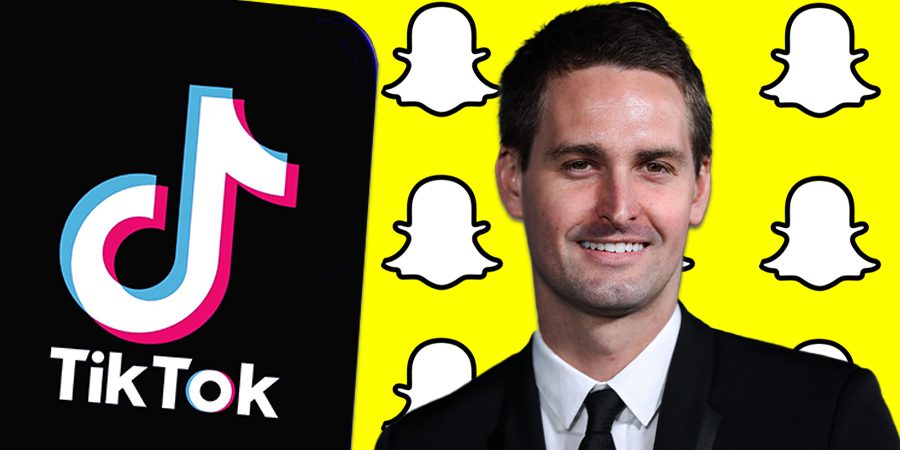In this article, we’ll look at the reasons behind Snap CEO Evan Spiegel’s mixed feelings regarding a possible US TikTok ban and the potential consequences of such a decision.
Key Takeaways:
- Snap CEO Evan Spiegel would appreciate a short-term US TikTok ban.
- A ban could set a dangerous precedent for other tech companies.
- TikTok is under review by Congress due to data privacy concerns and its connection to China.
- Snap has been trying to keep up with TikTok’s success by launching new features.
- Banning TikTok may not resolve national security concerns.
Snap CEO’s Mixed Emotions on a TikTok Ban
Snap CEO Evan Spiegel recently admitted he would welcome a US TikTok ban in the short term.
Speaking at the Snap Partner Summit, Spiegel said, “We’d love that. In the short term, that is something that would help us out.”
However, he quickly recognized the potential long-term consequences of such an action, acknowledging that it could have far-reaching implications for other technology companies.
The Dangers of Banning a Single Tech Company
Spiegel expressed concerns about the precedent that banning a single technology company could set.
He said, “I think there are some big questions about what that would mean longer term, single out a single technology company, instead of developing a more comprehensive regulatory well.”
A ban could have unintended ripple effects across the industry, potentially leading to more bans and stifling innovation.
TikTok’s Popularity Pressures Rivals
TikTok has become a formidable competitor to other social media platforms, putting immense pressure on rivals such as Snap.
Originally known as Snapchat, Snap has tried to keep up with TikTok’s success by rolling out a creator program and a short-form video feed.
However, the popularity of TikTok has made it challenging for Snap to maintain its market share, leaving the company longing for a short-term advantage.
The Complicated Path to Banning TikTok
Since 2020, TikTok has faced scrutiny from US lawmakers, who are concerned about data privacy, the spread of misinformation, and the safety of minors.
These concerns have been exacerbated by the platform’s ties to China via its parent company, ByteDance.
As a result, TikTok is currently being reviewed by Congress and could face a ban if its Chinese owners don’t sell their stakes.
The potential ban is fraught with complications, as it could be seen as a violation of users’ First Amendment rights and their constitutional right to receive foreign information.
ByteDance’s Efforts to Win Over US Critics
In an attempt to alleviate concerns about national security risks, ByteDance has argued that it is not solely a Chinese company.
The ownership of ByteDance is divided between global investors (60%), ByteDance employees (20%), and ByteDance founders (20%), who hold significant voting rights.
Over the past year, ByteDance has migrated all US user traffic to servers operated by American software giant Oracle and increased the number of US-based employees in its trust and safety team.
Furthermore, ByteDance has introduced new features to address concerns raised in Congress, such as an algorithm re-trainer to prevent the promotion of harmful content and parental screen time controls.
Addressing Data Privacy and National Security Concerns
Banning TikTok may not be the ultimate solution to data privacy and national security concerns.
As US Representative Alexandria Ocasio-Cortez said in a viral TikTok video, “The solution here is not to ban an individual company but to actually protect Americans from this kind of egregious data harvesting that companies can use without your significant ability to say no.”
It is worth noting that TikTok can collect user data even from individuals who aren’t directly using the app.
Over 28,000 apps, including popular gaming app Fruit Ninja and photo editor VSCO, use TikTok’s software development kits (SDKs) for functions like ads within TikTok, logging in, and sharing videos from the app.
Moreover, TikTok trackers can be found on numerous websites,such as Planned Parenthood, collecting data from users even if they don’t actively engage with the app.
This practice is not unique to TikTok; other social media and advertising companies, including Google and Meta, also operate in a similar manner.
Furthermore, the data collected by TikTok, including geolocation information, can easily be acquired from private data brokers, which raises questions about the efficacy of banning the app in addressing data privacy concerns.
Additionally, there is no guarantee that banning TikTok would prevent another Chinese tech company from introducing a similar app in the US market, which could potentially face the same national security concerns.
Conclusion
While a TikTok ban might offer temporary relief for rivals like Snap, the long-term consequences of such a decision could be far-reaching and potentially harmful.
A more comprehensive regulatory framework is necessary to address the concerns surrounding data privacy and national security without setting a dangerous precedent for the tech industry.
In the meantime, tech companies like Snap should continue to innovate and adapt in order to compete with the ever-evolving social media landscape.
 Sections of this topic
Sections of this topic
















